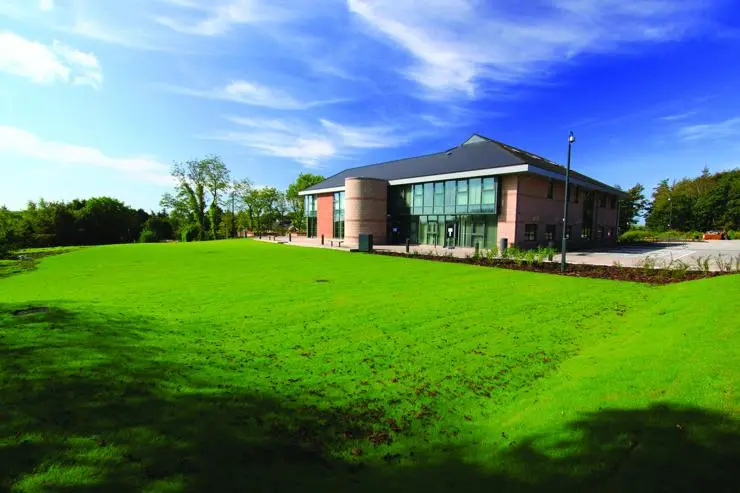A University of Central Lancashire Professor has become the first person in England to receive a new credential recognising the specialist skills needed to deliver urgent care in remote and rural locations.
The Director of the National Centre for Remote and Rural Medicine, Professor Stuart Maitland-Knibb, has been awarded the new specialist General Medical Council (GMC) approved Rural and Remote Credential. He joins only six other UK medics who have also received this gold stamp of approval, most of whom are based in Scotland, and is currently the only doctor in England to boast this status.
Developed in a UK-wide partnership led by NHS Education for Scotland (NES), the accreditation ensures doctors have the expertise to deliver unscheduled and urgent care in communities where people may be hours away from a hospital.
"I am proud to become the first practitioner in England to receive this recognition and hope this new GMC approved curriculum will pave the way in ensuring the health and wellbeing of those living in rural communities matches their urban counterparts"
— Director of the National Centre for Remote and Rural Medicine, Professor Stuart Maitland-Knibb
Currently, 9.7million people in England are classified as living rurally, with 42% of these located in sparsely populated areas.
Stuart, a world leading expert in delivering urgent care and emergency medicine in remote locations, said: “Doctors who practice in rural areas of England face unique challenges where they act as extended generalists who often need to deliver emergency medicine for up to 24 hours before a patient can be transferred to hospital.
“This new Rural and Remote Credential will equip doctors with the necessary skills need to operate in remote settings where any situation is possible and time is critical.
“I am proud to become the first practitioner in England to receive this recognition and hope this new GMC approved curriculum will pave the way in ensuring the health and wellbeing of those living in rural communities matches their urban counterparts.”
"We want to lead the way in England in developing a workforce of medical professions who are equipped with the relevant skills and training needed to serve rural communities."
— Director of the National Centre for Remote and Rural Medicine, Professor Stuart Maitland-Knibb
Medics can take two possible routes to achieving the Rural and Remote Credential; the learner route which includes experiential work-place based learning with some blended learning such as speciality-based placements, and the recognition route, which is a completely new approach in which doctors can demonstrate they meet the credential’s criteria by providing evidence rather than completing the learning pathway.
The National Centre for Remote and Rural Medicine is based in Whitehaven, West Cumbria, and attracts medical professionals from all over the world. It currently delivers four postgraduate courses that are designed specifically for medics working in remote and rural settings and which can be included as part of the credential’s leaner route pathway.
"It feels very fitting that our Director should be the first person in England to achieve this recognition."
— Pro Vice Chancellor Professor Cathy Jackson
Stuart added: “We want to lead the way in England in developing a workforce of medical professions who are equipped with the relevant skills and training needed to serve rural communities. More than half the population of Cumbria live rurally so the Centre is ideally positioned to champion this new initiative.”
Professor Cathy Jackson, Pro Vice Chancellor for Health and Campus Development at the University of Central Lancashire, said: “The National Centre for Remote and Rural Medicine is a leader in the provision of training for remote and rural healthcare workers in the UK.
“Over 300 medical students have already received at least a year of training there, in addition to all of the postgraduate training for doctors and allied health professionals who are also based at the Centre.”
“It feels very fitting that our Director should be the first person in England to achieve this recognition.”
Anyone interested in learning about courses delivered at the University’s National Centre for Remote and Rural Medicine can find out more via the website. More information about the Rural and Remote Credential is available from NHS Education for Scotland.


